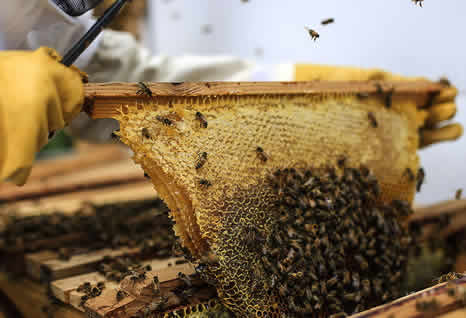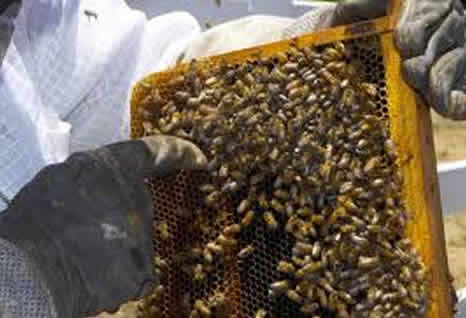Honey Bee : An Indispensable Micro Livestock to Man and His Environment.

Honey bees play an important but little recognized role in most terrestrial ecosystems where there is green vegetation cover for at least 3 to 4 months each year
The greatest added value of beekeeping lies in the fact that bees pollinate agricultural and horticultural plants. About one third of all plants or plant products eaten by humans depend directly or indirectly on bees for their pollination (Bradbear,2009). Crops pollinated by honey bees have been proven to produce higher yields and better quality, often at no extra cost for the farmer, rather crops’ seeds yield increment. Yet, many farmers consider honey bees as harmful insects (Berenbaum,2007). Economically, honey bee products such as Honey is value for medicine, Beeswax has up to 200 industrial uses which include, candle making, shoe polishes, electrical insulator, cosmetics, medical ointment,etc. Bee Pollen is used as high source of protein, vitamins,m fats, minerals, amino acids, as tablets and capsules for health and in cosmetics, etc. Bee Propolis has the following properties: antibacterial, antiviral, anti-fungal, and antihelminth. Bee Royal jelly is antioxidants packed, anti-aging, used restoring health, for improving fecundity and prolificacy. Bee Venom is used to treat all nervous system diseases(rheumatism, arthritis, lumbago,etc).
On the other hand, Pollination as one of the major advantages of beekeeping enterprise can not be over-emphasized. This activity is vital for life on earth. Adequate pollination is essential for maintaining the YIELDS of many foods and cash crops. Apiculture does not use up land that could be used for Crops. Beekeeping is sustainable. Beekeepers are friends of the natural environment, willing to conserve forests and vegetation where Bees live and forage. Other people in the Community can generate income through the sale of equipment, bees’ products and secondary products. In areas of Nigeria in particular and Africa at large where there are abundant natural resources and healthy bees populations, there are opportunities to market honey as organic or fair trade. Beekeeping is sustainable. Beekeepers are friends of the natural environment, willing to conserve forests and vegetation where honey bees live and forage.
Beekeeping is resilient when disaster happens. Displaced Communities can make hives and gain benefit from bees in a relative short time and Bees can be kept by men and women of all ages. Bees do not need daily care and can be attended to as other work allows. Honey bee equivalently provides 90 percent of the world’s nutrition. It might sound unbelievable, but without bees we can say goodbye to foods such as apples, almonds, oranges, avocados, etc.Considering that around 850 million people across the world are currently suffering from lack of food, coupled with the fact that the global population is set to balloon up to nine billion by 2050, we’re going to need all bees on deck if we hope to avoid mass food scarcity. According To Albert Einstein, If Honey Bees Were To Disappear From Earth, Humans Would Be Dead Within 4 Years. … If the farmers do not provide fields or orchards with enough honey bees for pollination, the whole harvest can fail. Honey bees are the only prime insects pollinators which produce the foods eaten by human. NO BEES, NO POLLINATION , NO PLANTS , NO ANIMALS , NO PEOPLE!
By Kingsley Nwaogu
+234(0)7035211909.

0 responses on "Honey Bee An Indispensable Micro Livestock to Man and His Environment"